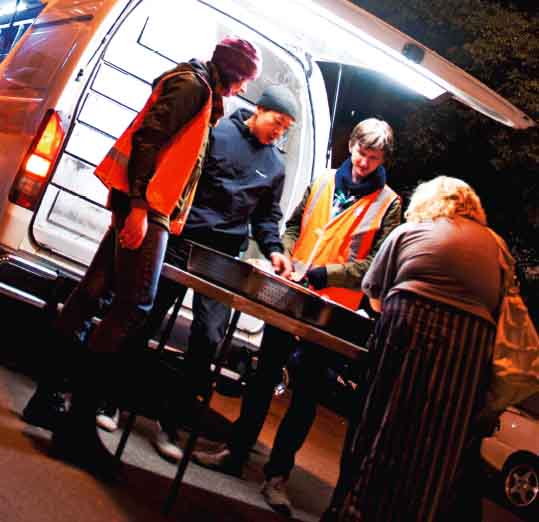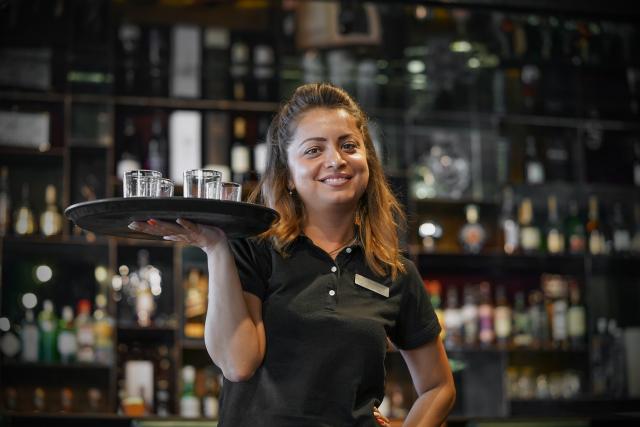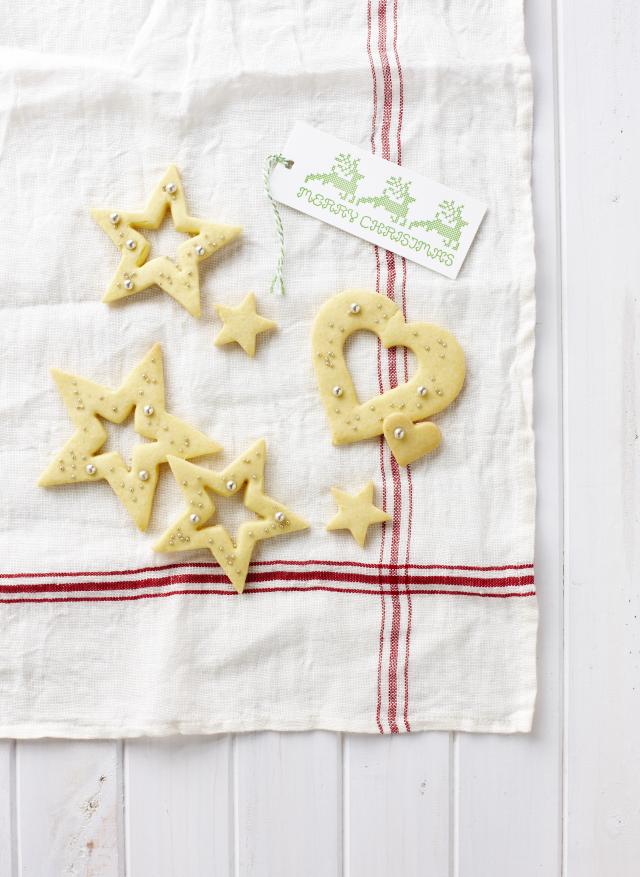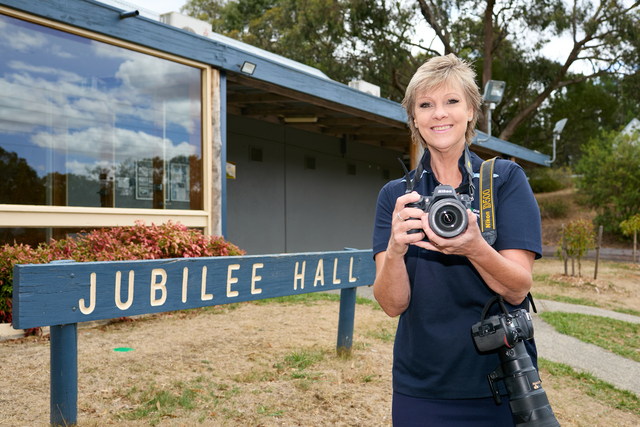Daniel Paproth helps to dish out food and friendship on the streets of Melbourne.
IN the large hall at North Melbourne’s Jean McKendry Neighbourhood Centre, there are four fold-out tables placed end-to-end to accommodate the hundreds of slices of bread laid out upon them. Sitting on the table closest to the door is a one-litre tub of margarine, seemingly endless packets of Kraft cheese and sliced ham, and a crate holding eight loaves of bread.
It’s Wednesday, about 6.30pm, and the volunteers gathered here are furiously preparing for “soup van”. Wednesday is the most popular night for volunteers and tonight there are about 30 of us, divided into two groups. Our group will hit the streets of inner Melbourne and the other will head to rooming houses in Fitzroy.
In our group is Russell, an Aboriginal man who has volunteered with the soup van for 16 years, Brother Doug, president of Soup Vans Victoria, and Big Al, a deeply religious man who speaks lovingly of the people he has met on the street. “I’m very emotional about people,” he says. “It guides my life, what I see on the street.”
The Matthew Talbot Soup Van, which starts in North Melbourne and covers Fitzroy, Carlton, South Melbourne and the CBD, has been providing more than 100,000 meals a year to homeless people since it started in 1975. It operates every day, attracts about 270 volunteers a year and serves as many as 300 people each night. There are three vans in Fitzroy and it costs St Vincent de Paul about $20,000 a month to maintain them.
Some year 11 and 12 students arrive to volunteer as part of their schooling and are immediately put to work making and bagging sandwiches. Al and I are introduced to Warren Tu, the co-founder of 300 Blankets, some members of which are special guests on the soup van for the night. Wanting to give back to the community, Tu and some friends started the initiative in April. It raises money through events such as live music and trivia nights to buy blankets from wholesalers to give to the homeless. There are 72 blankets to be distributed tonight; a small percentage of the 1698 the group collected. The haul exceeded its original target of 300, for which the initiative was named.
Al tells Tu and his team how much of a difference the blankets will make on a cold winter’s night. “They know what cold really means,” he explains. One night he met a man who was ecstatic because he had found a piece of corrugated iron to sleep on, meaning any rainwater would trickle underneath, keeping him somewhat dry.
“I cried with a guy on Flinders Street one night,”
Al says, telling another story as a few of us listen, captivated. “We were about to move on but if someone comes up we will stop and open the vans up. And this guy came up. He was very well dressed, almost overdressed. And he said ‘Can I get a few pies?’ and I said yeah.
“And he looked at me, in the middle of Flinders Street Station, and said ‘I don’t really want your pies.’ I said ‘I know, buddy. You want me to hold you, don’t you?’ And he cried, we both cried. He said ‘I’m a conman, I’m a conman’ and I said ‘Don’t worry about being a conman; we’re all conmen in one way or another. We fall down here and there, it doesn’t matter, we’ll get up again’.
“I could have stayed with him all night but I really couldn’t. He thanked me for the small time I spent with him. I never saw him again but I don’t judge. You never know, that guy might be out helping other people now.”
Al could tell us stories all night – he says he will write a book one day when he has the time – but it’s 7pm and time to get out on the road. He and Russell make a short speech before we depart, preaching respect for the people we will meet. “And remember: this could happen to you, it could happen to anyone,” says Al.
He tells us about a man who had a family and a job in Wonthaggi, but lost his job and his house and within three weeks was being given sandwiches from the van at Flinders Street Station.
As we drive to our first stop on Boundary Road, North Melbourne, Doug tells us how he came to be involved in volunteering and why he continues to do it after 20 years. “In 1978 I met Mother Teresa in Calcutta,” he says. “She said to me ‘You should go back to Australia and look for the poor in your own city,’ so I worked with people on the soup van.
“To me, handing out sandwiches and blankets is just a means to an end. It’s when they share things with me that I feel like I’m making a connection.”
We park alongside a sports oval on Boundary Road where a small crowd of regulars is gathered, waiting to be fed. For some it will be their only meal for the day. The first customer is a short, quietly spoken woman with dark brown hair. She carries one of those green environmental bags and gets some pies, fruit and a blanket before thanking us and disappearing into the night. The volunteers don’t know for sure where she and the other customers go. Many of them sleep rough – out in the cold with whatever protection they can find.
At each of the stops we are greeted by a group of regulars but, as Doug and Al point out, they aren’t just there for food, and that’s where the satisfaction – for both volunteers and the customers – comes in.
“It’s friendship as well as food,” Al says. “The food is level with the companionship, attention and feelings of worth. If you see a guy lying in the street, you either spit on him or help him. If you walk past him you’ve spat on him. The only happiness you’ll get in this world is helping other people to be happy.”
At about 8.30pm, the scene at Flinders Street Station makes for quite a change from the dark, sparse stops in North Melbourne, Fitzroy and Carlton. As we pull up on the station side of Flinders Street, there is a large crowd of people waiting for the vans.
Many are in good spirits. A bloke in an electric wheelchair who barracks for Hawthorn tells me they’ll be right if only Buddy Franklin could kick straight. As I’m handing out pies a tall, scruffy-bearded man calling himself “Stretch” comes up and asks if we have any hash cookies. Unfortunately not, I tell him, but we strike up a conversation about food.
“Do you want to hear a joke?” Stretch asks. “Sure,” I say. “Why do bulimics like KFC? Because it comes with a bucket.” He bursts into laughter before he thanks me for the food and moves on.
A night on the soup van is, as Al predicted, emotionally draining. You soon forget about how cold it is, or how hungry you are, or the problems of your own life, because the soup van requires you to give of yourself completely for a few hours. I’ve spent countless hours in the CBD, but never like this. The things you see are sad, but you can’t dwell on them. As Al says: “Never judge.”
So how does one feel when the night is over, the vans are cleaned, and everyone goes home to a warm bed? Doug considers the question. “I feel OK … ” he begins. “The times I do get sad are when we come out to see the people I’ve gotten to know and one of them is missing. It’s quite sad when you find out someone has died.
“I don’t want to ask questions of them, or where they’re going home to, that’s their private thing. Even though they don’t have much they are very appreciative and you can see it in the way they say ‘thank you’.”
Doug’s words are true. One of the people we meet tonight, a Chinese gentleman, says ‘‘thank you’’ 20 or 30 times after he’s given warm vegetable soup, hot pies and a blanket. Al says when they first met him he was rude and curmudgeonly; over time he opened up, softened, and now you can almost see tears of appreciation well up in his eyes.
Nearly all the customers are the same. By about 9.30pm we get to Queen Victoria Market, the last stop, and most of the hot food is lukewarm. But the smiles exchanged by all involved suggest it doesn’t matter in the slightest. Simply being there makes a difference.
<b.To get involved, call the volunteer hotline on
1300 736 933 or email volunteer@svdp-vic.org.au







